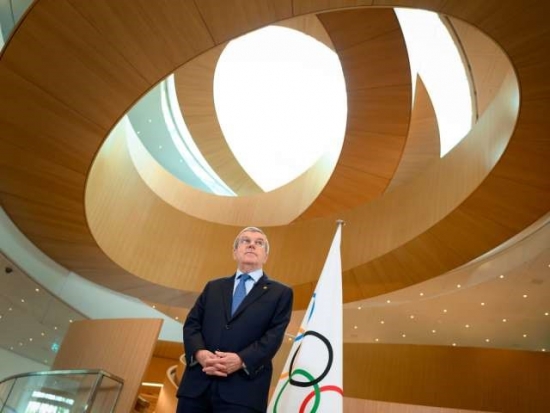Canada handed the IOC the excuse it needed to postpone the Tokyo Olympics, by Richard C. Powers

Thomas Bach, the president of the International Olympic Committee (IOC), got exactly what he was hoping for when both Canada and Australia indicated that they would not be sending athletes to the 2020 Tokyo Olympics, which was scheduled to take place this summer, but has now been postponed until 2021.
Up until that point, he had shied away from calling for the cancellation or postponement of the Games, while just about every other sports organization in the world had accepted that they could not operate under the current COVID-19 crisis. Rather than show the leadership that his position demands, Bach dithered, and until very recently, refused to even acknowledge that the Games were at risk. The IOC’s mission — to “place sport at the service of humanity” — appears to have been forgotten as countries around the world grapple with the fallout from COVID-19 and the serious consequences that have affected their populations.
But when countries representing almost 25 per cent of the total medal count at the last summer Olympics in Brazil indicated that they would either not be sending athletes, or began advocating for a postponement, it became impossible not to address the situation and make a definitive statement. Canada made the right decision and showed the leadership that had been lacking at the IOC. Granted, Bach was in a tough position and it was not just his decision to make — he had a throng of other stakeholders to convince that postponing the Games was the right thing to do under the circumstances. But he was left with few choices given the scale of the current pandemic.
The decision to postpone the Games will certainly not be universally supported. Many athletes will feel cheated and some may miss the opportunity to compete given the challenges of continuing to maintain a world-class regime of training and funding for at least another year. These are legitimate concerns and we can sympathize with their predicament. However, to avoid competing in a Games overshadowed by the risk of being infected by a potentially deadly virus will at least leave them healthy enough to compete in the future, should they wish to do so.
Another factor that has contributed to the decision to postpone the Games has to do with the lack of proper preparation by our athletes (training facilities are closed) and the cancellation of qualifying competitions in advance of the Games. In order to choose who to send to the Games, countries typically require athletes to meet qualifying standards or compete in competitions designed to select the top finishers in their respective disciplines. Yet those competitions have been cancelled or postponed, leaving national sports organizations in a quandary as to how the selection process would be run if the Games were to go ahead. An open and fair process is required and that can only be achieved with more time.
Approximately 70 per cent of the revenues from the Games come from sponsorships and international broadcast rights. For a long time, Japan also stubbornly maintained that the Games would proceed, regardless of the COVID-19 pandemic. These two factors clearly made the IOC reluctant to decide.
While nobody else in the world was predicting an end to the crisis, Japan and its Olympic organizing committee somehow knew that it would end in time for the Games to take place. Their wish to protect their investment and the returns it would generate were paramount. While it would be reasonable under normal circumstances to protect that investment, the situation we are now facing is anything but normal. We will have to wait and see how they plan to maintain that investment and garner the anticipated rewards when the Games do take place.
It is also interesting to note that not one of the major Olympic sponsors or partners responded to the repeated calls for a postponement, again suggesting that they value profits over the safety of athletes, officials, volunteers, spectators and even their own employees.
In the end, the correct decision was made. There will be a Summer Olympiad, it just will not take place this year. The Canadian Olympic Committee has once again shown what true leadership looks like. However, in doing so, it also handed Bach the excuse he needed to make the right call and postpone the Games. This is the tail wagging the dog, but in this case, the dog was oblivious or was too consumed with its bowl of riches to see the pressure building behind it.
Courtesy of: National Post
Richard C. Powers is an associate professor at the Rotman School of Management at the University of Toronto and the president of Commonwealth Sport Canada.











